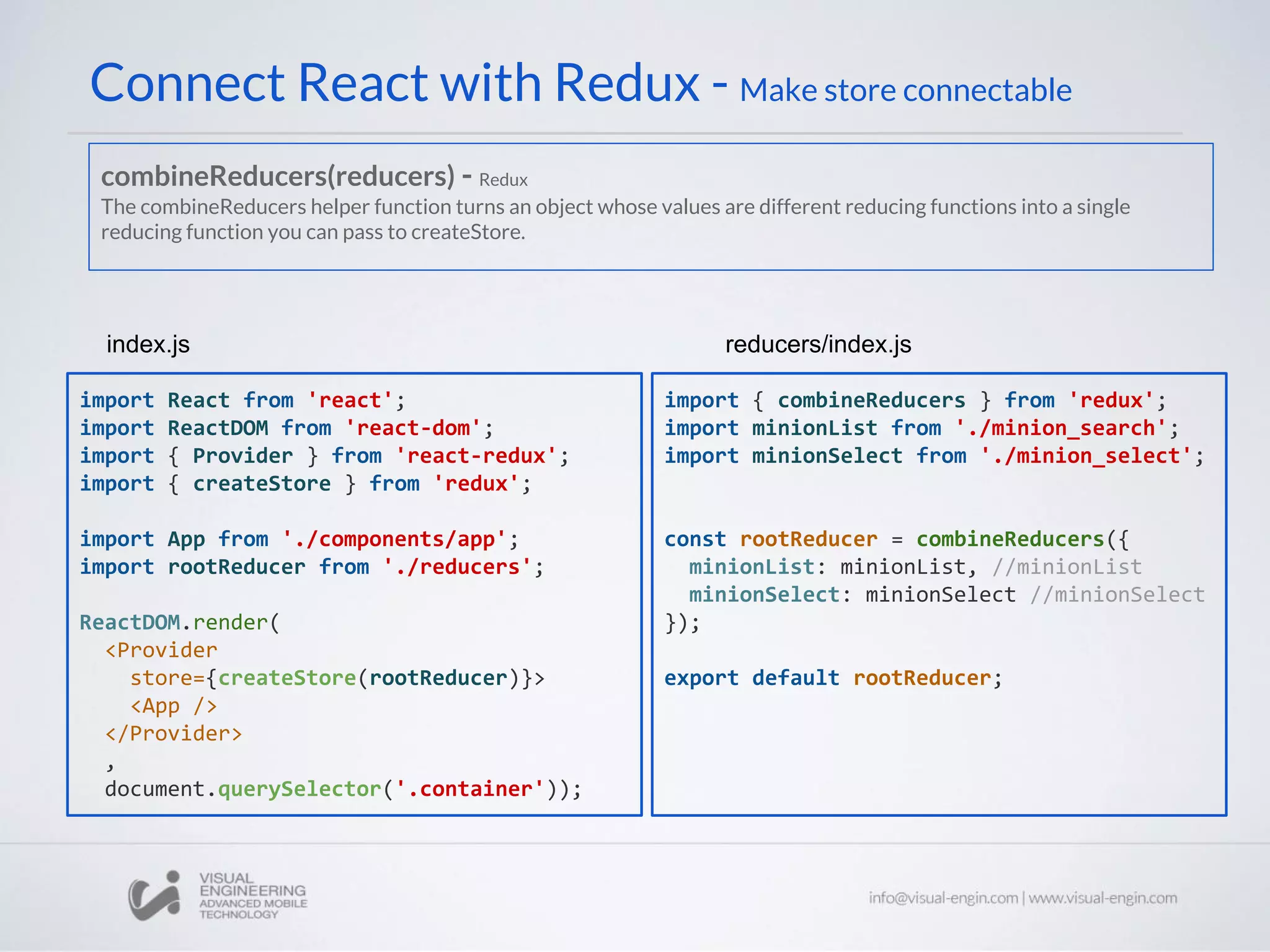The document provides an overview of ReactJS, including component types and the Flux pattern with Redux framework. It outlines the key principles of Redux such as single source of truth, read-only state, and pure function reducers, along with practical examples for integrating React with Redux through connect, action creators, and store creation. Further, it demonstrates how to implement a Minion app using these concepts, emphasizing the structure and flow of data management in a React application.


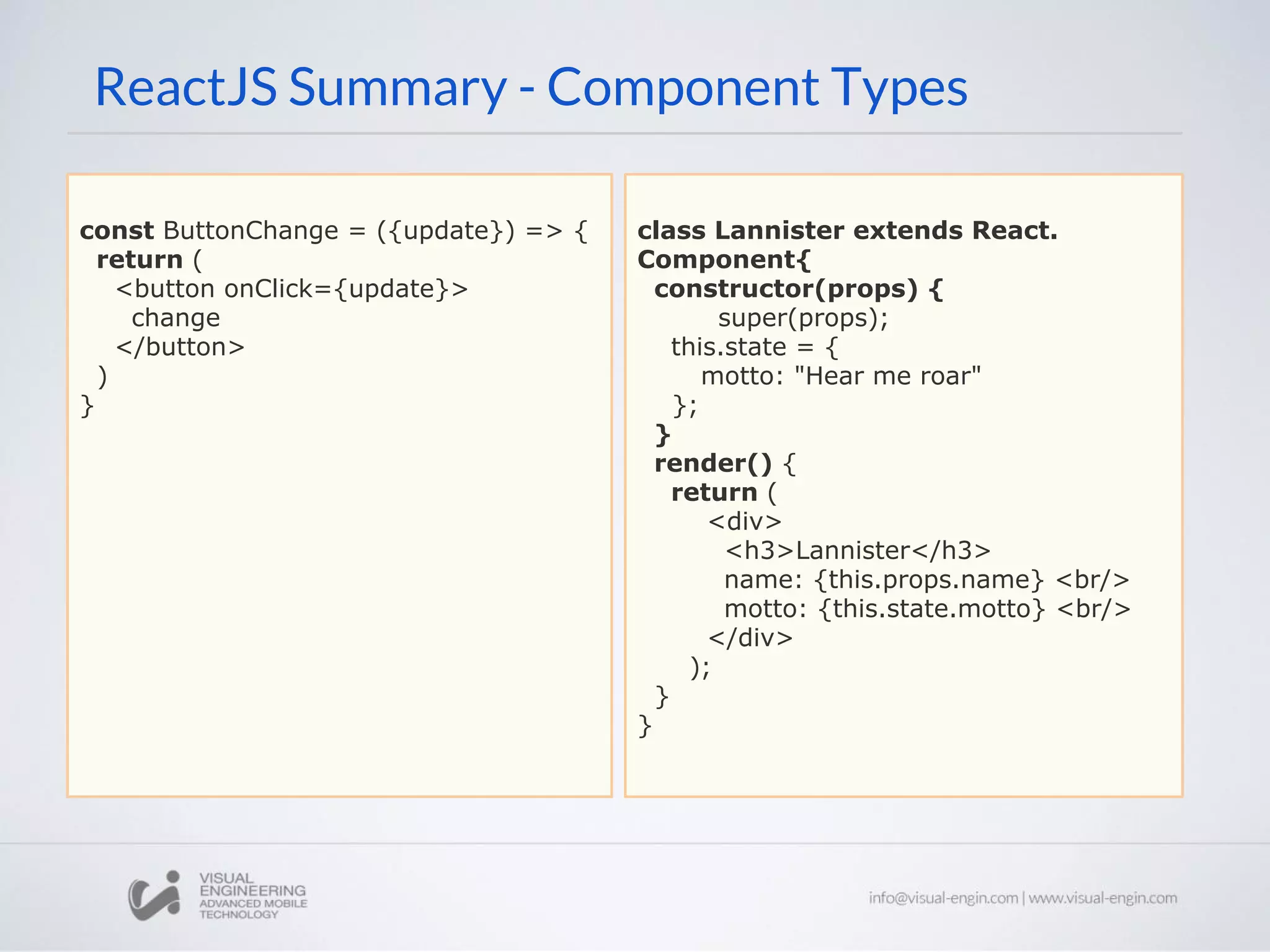
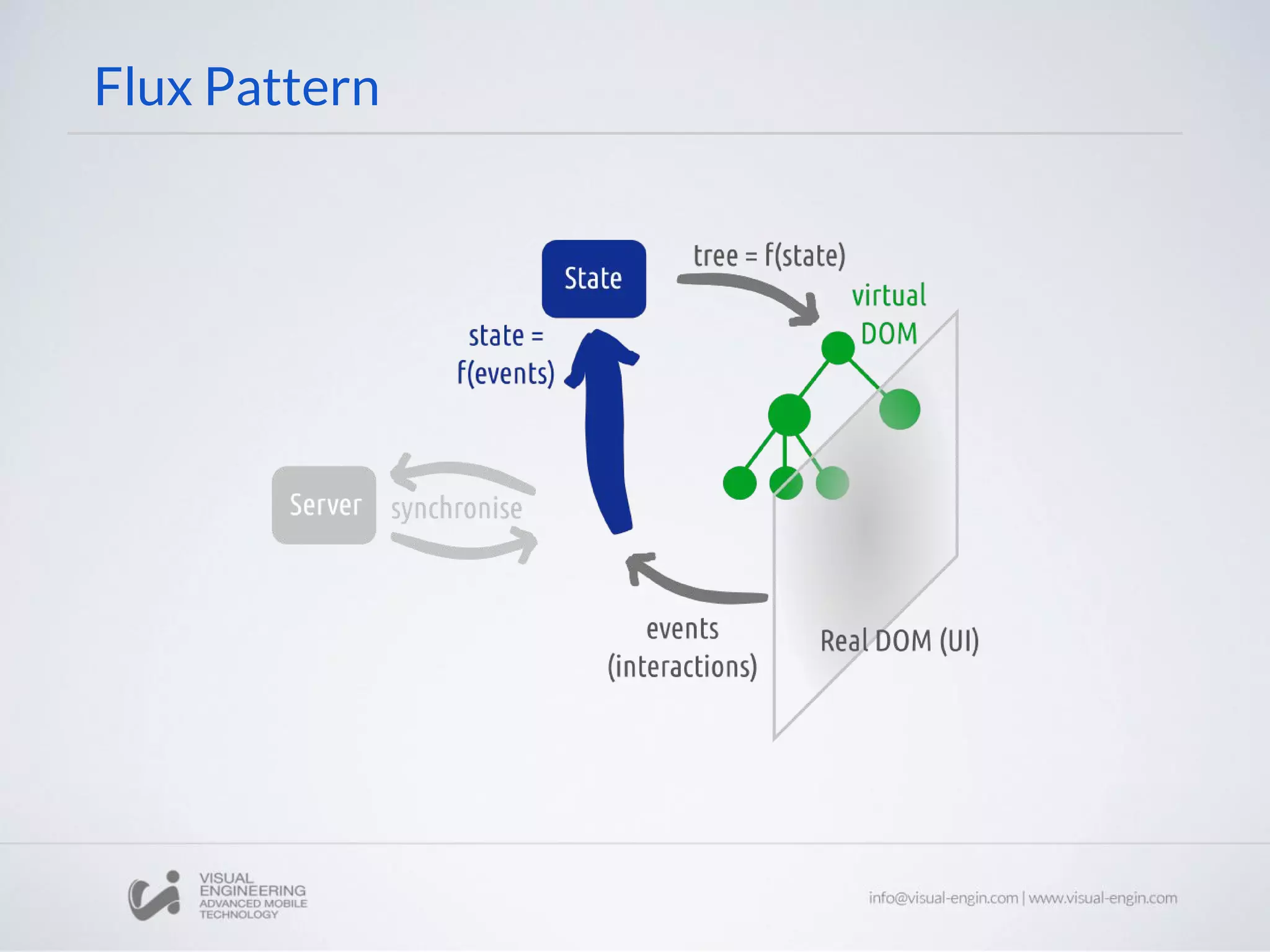

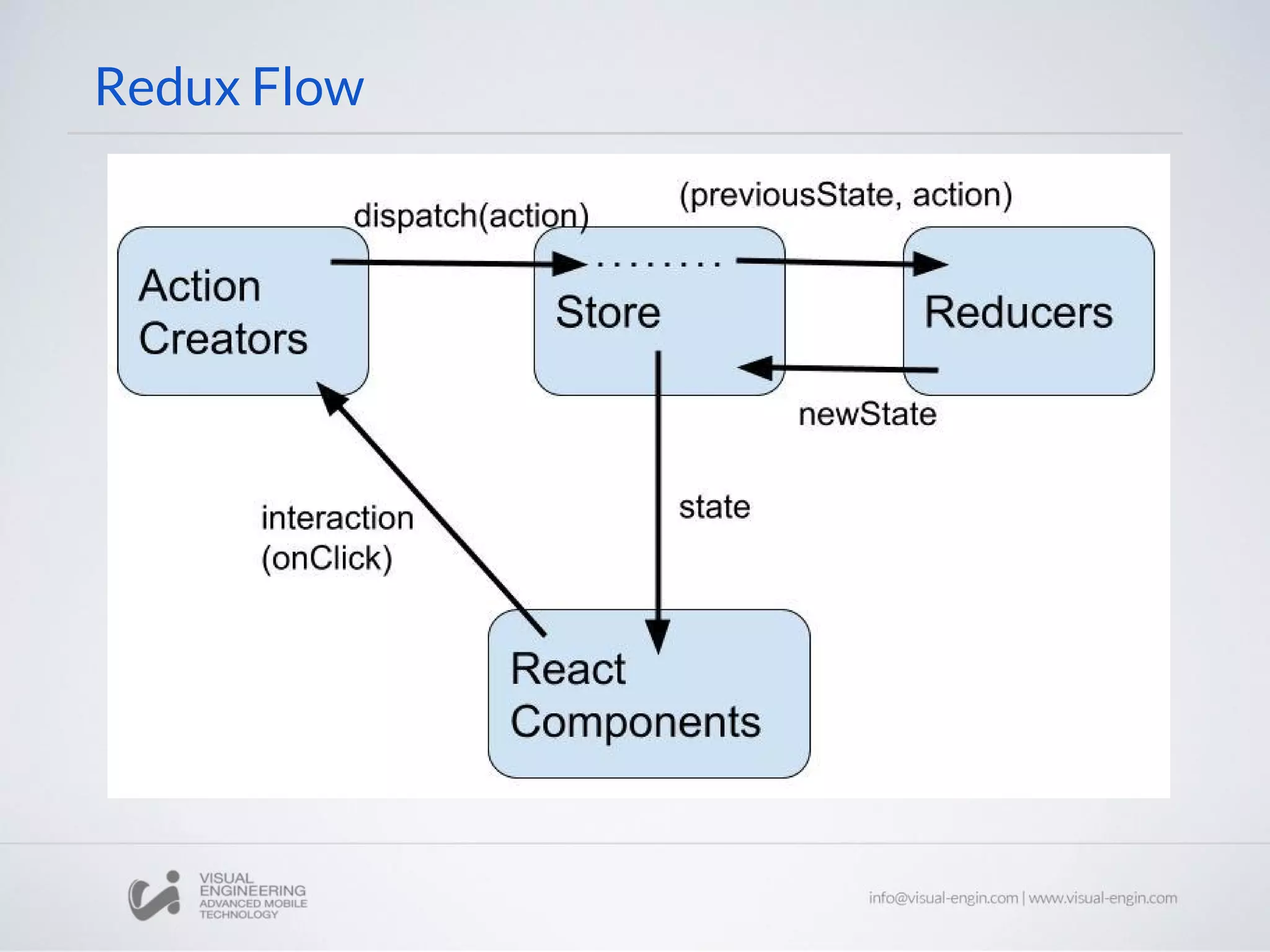
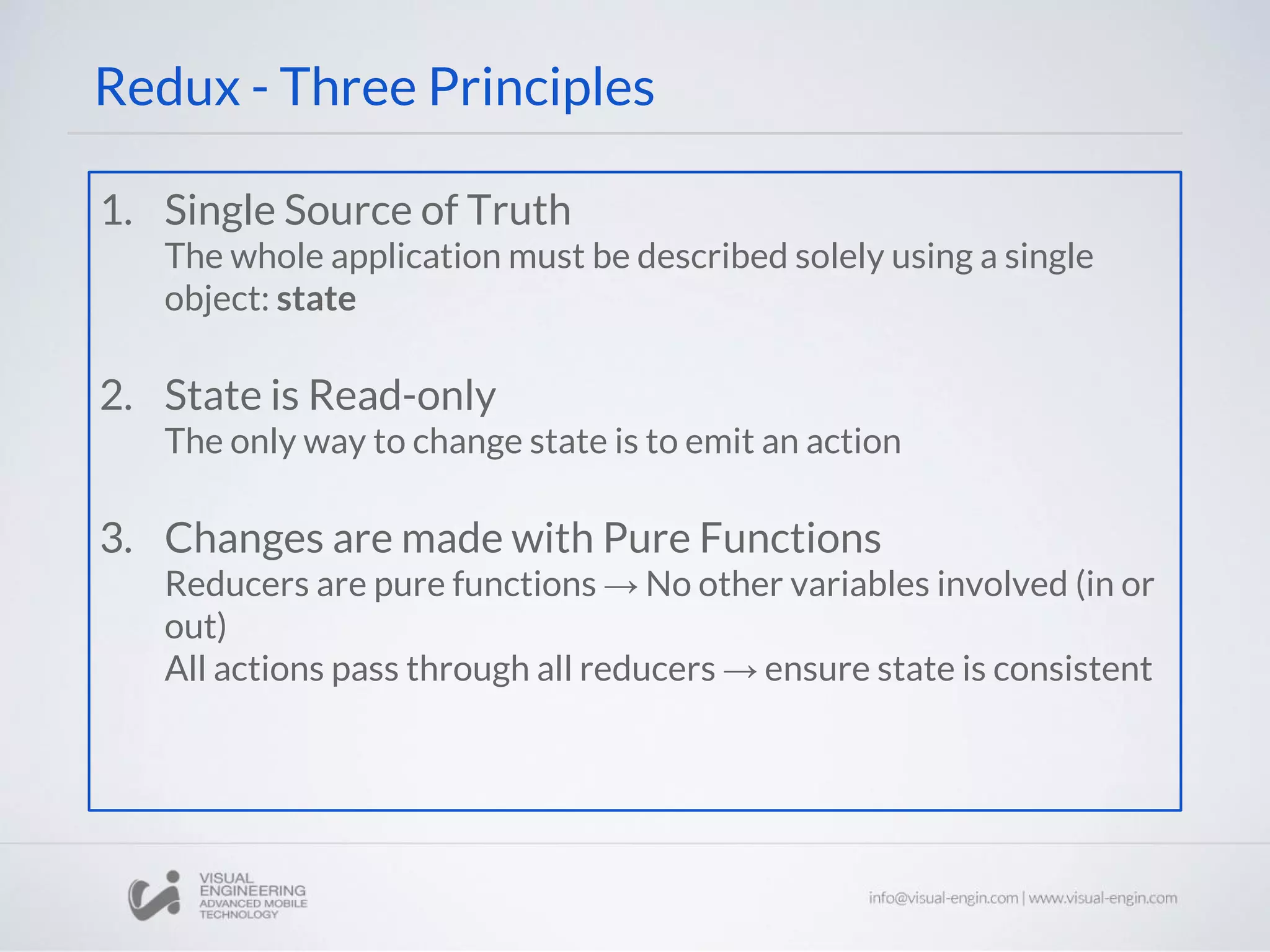
![IN STATE WE TRUST
State: Single Source of Truth
$> console.log(store.getState())
{
visibilityFilter: 'SHOW_ALL',
todos: [
{
text: 'Consider using Redux',
completed: true,
},
{
text: 'Keep all state in a single tree',
completed: false
}
]
}](https://image.slidesharecdn.com/reactjs-redux-160705105436/75/Workshop-20-ReactJS-Part-II-Flux-Pattern-Redux-8-2048.jpg)

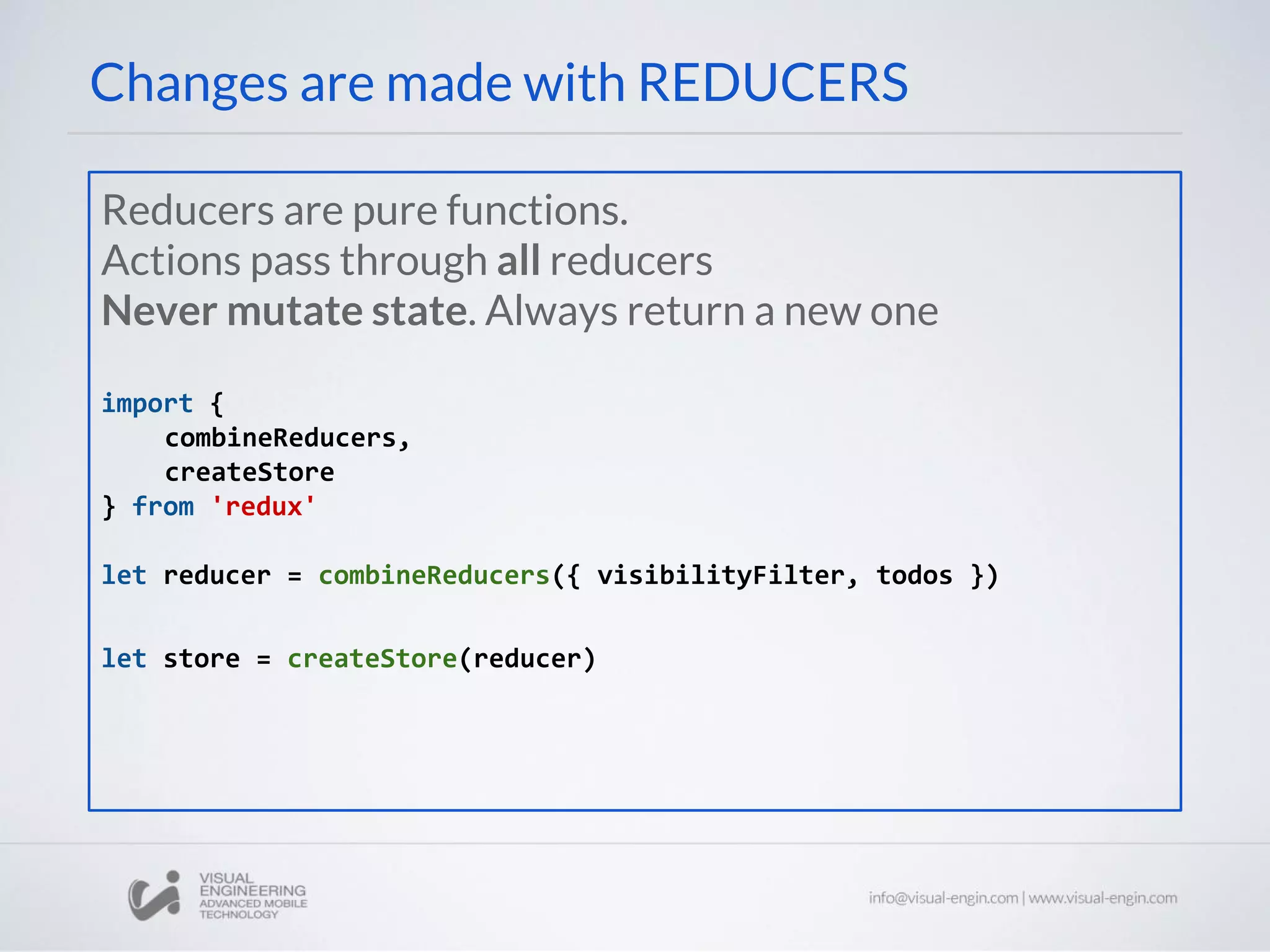
![Changes are made with REDUCERS
function todos(state = [], action) {
switch (action.type) {
case 'ADD_TODO':
return [...state, {
text: action.text,
completed: false
}]
case 'COMPLETE_TODO':
return state.map((todo, index) => {
if (index === action.index) {
return Object.assign({}, todo, {
completed: true
})
}
return todo
})
default:
return state
}
}
function visibilityFilter(state =
'SHOW_ALL', action) {
switch (action.type) {
case 'SET_VISIBILITY_FILTER':
return action.filter
default:
return state
}
}](https://image.slidesharecdn.com/reactjs-redux-160705105436/75/Workshop-20-ReactJS-Part-II-Flux-Pattern-Redux-11-2048.jpg)
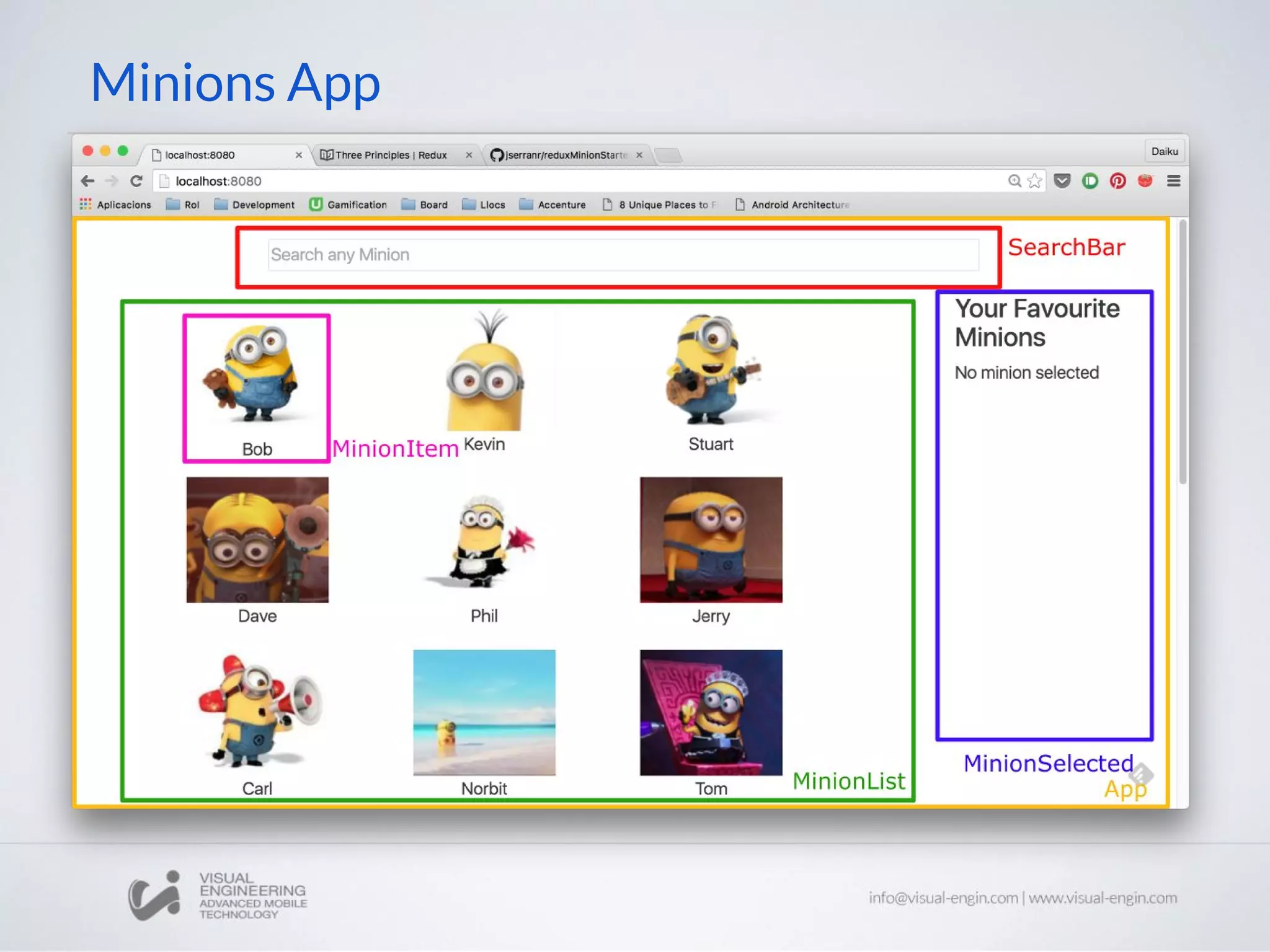
![Connect React with Redux - mapStateToProps
import React, { Component } from 'react';
import { connect } from 'react-redux';
class MinionList extends Component {
createMinionMap() {
return this.props.minionList.map(minion => {
return (<MinionItem key={minion.id} minion={minion} />);
});
}
render() {
return (<ul className="col-md-10">{this.createMinionMap()}</ul>);
}
}
function mapStateToProps(state) {
return {
minionList: state.minionList
}
}
export default connect(mapStateToProps)(MinionList);
containers/minion_list.js
connect([mapStateToProps], [mapDispatchToProps], [mergeProps], [options]) - React-redux
Connects a React component to a Redux store.
It does not modify the component class passed to it. Instead, it returns a new, connected component class, for you to use.](https://image.slidesharecdn.com/reactjs-redux-160705105436/75/Workshop-20-ReactJS-Part-II-Flux-Pattern-Redux-13-2048.jpg)
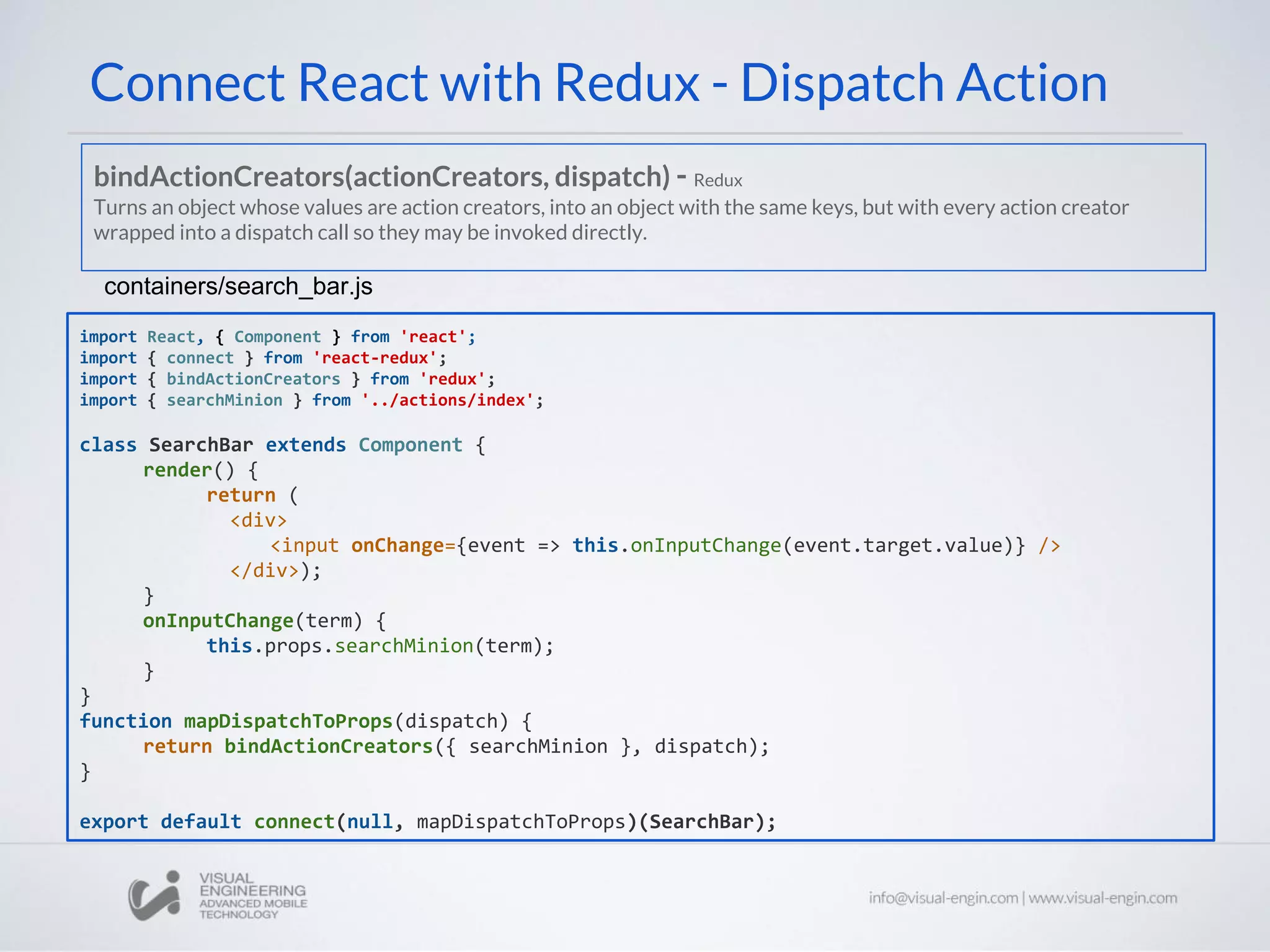
![Connect React with Redux - Define Action
export const SEARCH_ACTION = 'SEARCH_ACTION';
actions/types.js
import {
SEARCH_ACTION
} from '../actions/types';
export default function(state=[], action)
{
switch (action.type) {
case SEARCH_ACTION:
//return [action.payload, ...state];
return action.payload;
default:
return state;
}
}
reducers/minion_search.js
import {
SEARCH_ACTION
} from './types';
export function searchMinion(term) {
return {
type: SEARCH_ACTION,
payload: getMinionListByTerm(term)
}
}
actions/index.js](https://image.slidesharecdn.com/reactjs-redux-160705105436/75/Workshop-20-ReactJS-Part-II-Flux-Pattern-Redux-15-2048.jpg)
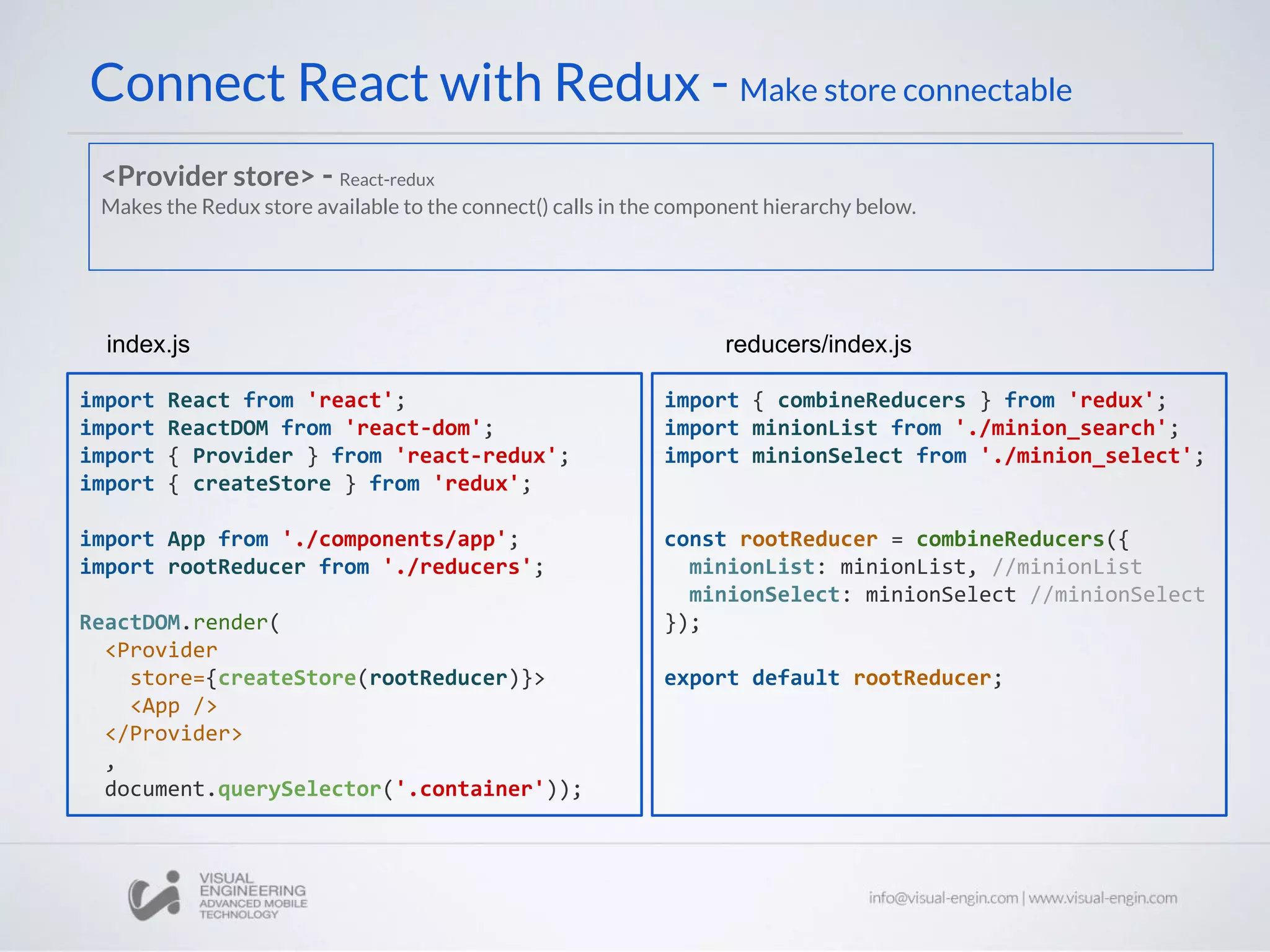
![Connect React with Redux - Make store connectable
import React from 'react';
import ReactDOM from 'react-dom';
import { Provider } from 'react-redux';
import { createStore } from 'redux';
import App from './components/app';
import rootReducer from './reducers';
ReactDOM.render(
<Provider
store={createStore(rootReducer)}>
<App />
</Provider>
,
document.querySelector('.container'));
index.js
import { combineReducers } from 'redux';
import minionList from './minion_search';
import minionSelect from './minion_select';
const rootReducer = combineReducers({
minionList: minionList, //minionList
minionSelect: minionSelect //minionSelect
});
export default rootReducer;
reducers/index.js
createStore(reducer, [initialState], [enhancer]) - Redux
Creates a Redux store that holds the complete state tree of your app.
There should only be a single store in your app.](https://image.slidesharecdn.com/reactjs-redux-160705105436/75/Workshop-20-ReactJS-Part-II-Flux-Pattern-Redux-17-2048.jpg)
